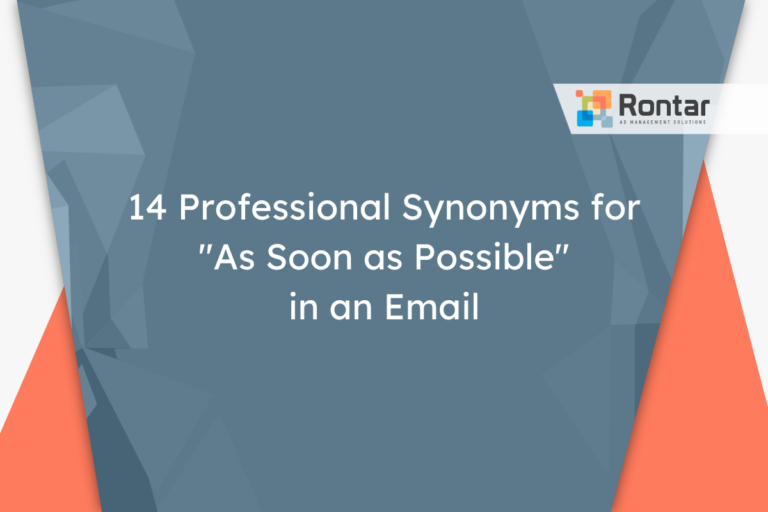10 Synonyms for “Please Correct Me if I Am Wrong”

It’s essential to communicate in ways that invite feedback and corrections without sounding uncertain.
This article presents ten professional, yet not overly formal, alternatives to the phrase “Please correct me if I am wrong.” Each alternative is broken down to explain when and how it can be used for the best impact in professional emails.
Is It Professional to Say “Please Correct Me if I Am Wrong”?
Asking someone to “please correct me if I am wrong” is indeed seen as professional, formal or semi-formal, and polite. By using it, you’re showing respect for the other person’s knowledge and perspective while also expressing your openness to correction.
It works well with various types of recipients, ranging from colleagues, supervisors, clients, to academic mentors. It can be effectively used in emails, reports, formal letters, and even in face-to-face or virtual meetings, making it a versatile phrase for different communication mediums.
Here is an example:
Dear Mark,
I've reviewed the project plan, and based on my understanding, the deadline for the next phase is December 15th. Please correct me if I am wrong, but I believe this aligns with the timeline discussed in our last meeting.
Thank you for your guidance and support.
Best regards,
Emily
Pros:
- Shows humility and a willingness to learn.
- Encourages open and honest communication.
- Builds respect between the parties involved.
Cons:
- Could be perceived as a sign of uncertainty or lack of confidence.
- May invite unnecessary corrections if used excessively.
Although “please correct me if I am wrong” is effective, there are instances where someone might want to use an alternative phrase to avoid repetitiveness or to sound more confident.
10 Other Ways to Say “Please Correct Me if I Am Wrong”
Looking for different ways to invite feedback or correction in your professional emails? Here are ten alternatives that keep the conversation polite and constructive:
- Kindly point out any inaccuracies.
- Feel free to highlight any errors.
- I’m open to any corrections.
- Let me know if there are any discrepancies.
- Would you mind verifying this information?
- Please advise if my understanding is incorrect.
- I welcome your insights.
- Do not hesitate to correct me.
- Your feedback would be appreciated.
- I encourage you to point out any mistakes.
1. Kindly point out any inaccuracies
This alternative maintains a professional and polite tone, similar to the original phrase. It is succinct and directly invites the recipient to identify any possible errors in the information presented. This phrase is particularly useful in situations where precise data or facts are being discussed. It subtly suggests that while you have done your due diligence, you are still open to and appreciative of any additional insights that could refine your understanding or the accuracy of your data.
Appropriate for communications with colleagues, supervisors, and external partners, this phrase can be employed in emails, reports, and formal documents. It is especially fitting when the information being shared serves as the basis for important decisions or actions.
Email sample:
Dear Alex,
I have attached the final report which includes the latest market analysis. Kindly point out any inaccuracies you might notice.
Best,
Samantha
2. Feel free to highlight any errors
This phrase creates an inviting and informal atmosphere, suggesting that feedback is not only welcome but encouraged. It’s excellently suited for creating a comfortable dialogue where the recipient feels at ease to share their knowledge or corrections. This alternative is better used when the sender and recipient have an established rapport or in less formal corporate cultures. By using this, you bear a friendly tone, implying trust in the recipient’s expertise without imposing.
Suitable for email exchanges with colleagues or team members. It works well in collaborative projects or documents where peer review is part of the workflow.
Here’s an example:
Hi Taylor,
I've updated the project timeline based on our last discussion. Feel free to highlight any errors.
Cheers,
Jordan
3. I’m open to any corrections
This variant suggests a professional, yet informal approach. It signifies that you value the recipient’s input and are genuinely receptive to their feedback, which fosters a collaborative environment. This alternative is particularly effective in situations where fostering an open and inclusive communication climate is key. It also conveys a sense of humility and readiness to engage in constructive dialogue.
It’s most effective in email correspondences within team settings or with those you have a mentoring relationship with, where iterative feedback is an integral part of the process.
Example:
Hello Brenda,
Following our strategy session, I drafted the updated workflow. I'm open to any corrections.
Best,
Carlos
4. Let me know if there are any discrepancies
This phrase is professional and suggests a higher level of formality. It is particularly suitable when dealing with complex or detailed information where accuracy is paramount. It also implicitly respects the recipient’s ability to discern and critique details, which can be flattering. The phrase sets a respectful tone, indicating that you are meticulous in your work but still value their oversight.
This alternative fits well in communications with managers, clients, or other stakeholders, especially when sharing reports, contracts, or critical analyses via email or formal letters.
Email sample:
Dear Sydney,
Please see the attached document for the project’s revised budget. Let me know if there are any discrepancies.
Regards,
Elena
5. Would you mind verifying this information?
This is a more formal alternative, which is polite and shows deference to the recipient’s knowledge or position. It’s useful when you are seeking confirmation or validation of critical information from a superior or an expert. This alternative indicates not just a willingness to be corrected, but actively seeks confirmation, making it ideal for situations where accuracy and confirmation are vital.
Perfect for emails directed at supervisors, experts in a particular field, or when requesting fact-checking from colleagues.
Example:
Dear Dr. Hayes,
I have compiled the research data as discussed. Would you mind verifying this information?
Thank you,
Liam
6. Please advise if my understanding is incorrect
This alternative is professional and leans towards the more formal side of communication. It clearly demonstrates respect for the recipient’s expertise and judgement. This phrase is especially useful in scenarios where you’re interpreting policies, strategies, or complex ideas and want to ensure your interpretation aligns with the intended meaning or directions. It implicitly shows your openness to guidance and correction.
Use this with managers, mentors, or in any professional setting where you are seeking clarification or confirmation on your interpretation of information.
Email example:
Dear Mr. Patel,
Based on our recent meeting, I’ve drafted the marketing proposal. Please advise if my understanding is incorrect.
Yours sincerely,
Nadia
7. I welcome your insights
This phrase is a polite, broad invitation for feedback, making it informal yet professional. It’s less about seeking correction and more about valuing the recipient’s perspective, making it suitable for brainstorming or idea refinement stages. This alternative fosters a collaborative atmosphere and is great for scenarios where you’re not just looking for errors but also suggestions for improvement or new ideas.
Great for emails to colleagues or team members during the conceptual stages of a project, or when soliciting feedback on proposals or presentations.
Here’s an example:
Hi Jamie,
I've sketched some initial designs for our app interface. I welcome your insights.
Best wishes,
Robin
8. Do not hesitate to correct me
This option is straightforward and professional, with a touch of formality. It directly invites the recipient to offer corrections without any overture, which can be particularly effective in a professional context where precision and accuracy are prioritized. This phrase is better suited to environments where directness is appreciated and where there’s an established understanding that feedback is a part of the process.
Appropriate for use with supervisors, colleagues, or academic advisors, especially in emails or documents where detailed feedback is essential.
Email sample:
Dear Professor Thompson,
Enclosed is my thesis draft on contemporary urban planning. Do not hesitate to correct me.
Warm regards,
Ella
9. Your feedback would be appreciated
This phrase is polite and introduces a professional, slightly formal tone. It suggests that while not explicitly asking for correction, you value the recipient’s opinion and are open to their feedback. This alternative is versatile and can be used in various contexts, from soliciting feedback on written documents to general strategies or business plans. It indicates a positive approach to receiving feedback, whether corrective or suggestive, making it useful for fostering constructive dialogue.
Suitable for communications with clients, peers, or leadership when sharing proposals, reports, or during project evaluations.
Email example:
Dear Team,
As we approach the project deadline, I’ve outlined our current status and next steps. Your feedback would be appreciated.
Thank you,
Oliver
10. I encourage you to point out any mistakes
This phrase is professional and slightly informal, creating an environment that encourages active participation and the sharing of feedback. It’s a direct invitation to engage in the improvement process by identifying and correcting mistakes. This alternative is particularly effective in teamwork or collaborative situations where collective input is valued for enhancing the outcome. It makes the recipient feel valued and an essential part of the decision-making or correction process.
This is best used in collaborative emails or during the review phases of group projects, where input from all team members is crucial for success.
Example:
Hello Team,
Please review the attached document for our project submission. I encourage you to point out any mistakes.
Best,
Diane
Final Thoughts
Choosing the right words to encourage feedback in a professional setting is important. The alternatives provided here offer a range of options that maintain a polite and respectful tone. Whether you’re communicating with a colleague, supervisor, or client, these phrases can help you invite corrections effectively. By making small changes to how you request feedback, you can improve communication and collaboration within your workplace.






